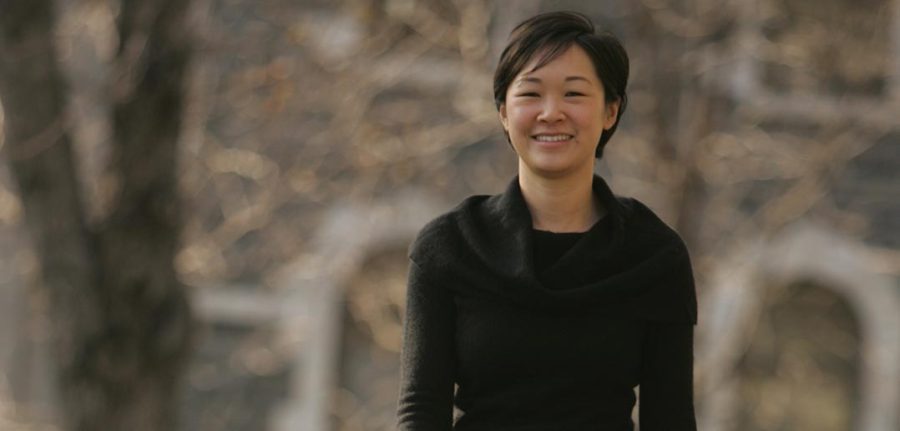Fordham Professor Continues Sleep Study
Last year, Dr. Tiffany Yip, developmental psychologist and professor of psychology at Fordham College Rose Hill, began the Fordham University Sleep Study (FUSS).
Through FUSS, Yip is analyzing how the stress of the transition to college impacts sleep behaviors of Fordham students. Students participating in the study wear a medical-grade sleep watch for two weeks, once in the fall and once in the spring, every year that they are at Fordham. This watch tracks both the duration and the depth of sleep participants get each night.
In addition to tracking their sleep, Yip also has participants fill out a survey about their general life patterns, behaviors and stressors. During the two weeks that participants wear sleep watches, they fill out a brief nightly survey describing their day. “The reason we do that is so we can track what happened that day with their sleep that night. Like if you have an exam, that’s going to impact your sleep one way, or if you had an argument with a friend, your sleep’s gonna be impacted in different ways,” said Yip.
In the spring, participants fill out a “biological battery marker” which is a physical health assessment FUSS researchers use to record participants’ height, weight, cortisol levels and other physical indicators of stress.
“It’s pretty holistic,” said Yip. “We ask about mental health, physical health and grades, but we also take physiological assessments of health because sometimes we’re not the best at reporting how stressed we are. By taking cortisol and other physical markers, we get a better sense of how much stress is processed in the body.”
The end goal of FUSS is to better the mental and physical health of college students by improving their sleep. “We’ve seen especially in the pandemic that college students wrestle with a unique set of stressors. It’s an important developmental period in life. It’s also stressful, meeting new people, being away from home for the first time,” said Yip. Yip’s research will give insight into how that stress impacts sleep on a daily level.
Yip said that her inspiration for this study came from her undergraduate research students here at Fordham. Before FUSS, Yip studied the sleep patterns of high school students. The research used two models of sleep watches, so she asked her undergraduate research students to test the new model.
Through this testing, Yip found that the students in her research lab had far more erratic sleep patterns than the high school students she studied.
After seeing how poorly her students slept, Yip said she was inspired to look into existing research on college students’ sleep, but there was not much.
“College students are actually much more erratic and irregular sleepers, at least relative to high school students, and college students like to nap a lot, so I think there’s even more reason to study sleep and health among college students than any other age group,” said Yip. Yip gave the example that many college students wake up early for 8:30 a.m. classes on some days, but on others, they don’t have class until later in the day or at all. Meanwhile, high school students wake up at the same time every day.
“One of the interesting things that we found looking in the data from last year’s first-year class is most students understand sleep is really important to their physical and mental health,” said Yip, “but at the same time students are saying their peers think it’s more important to stay up at night and socialize or to stay up to study than to sleep. So there’s an interesting tension there.”
According to Yip, there were around 400 undergraduate student volunteers from the class of 2025 participating in the study last year, and she hopes to have the same number of, if not more, undergraduates from the class of 2026 participate this year.
Among these volunteers, Yip is particularly interested in the sleep of students of diverse gender, racial and ethnic backgrounds, as well as commuter students, first generation students and students of different socioeconomic backgrounds.
“A lot of it is about making sure we have really broad representative data across the various constituencies at Fordham,” said Yip.
FUSS is currently recruiting undergraduate students from the class of 2026 who would like to participate in the study. Any interested class of 2026 students or returning class of 2025 students can email FUSS at [email protected] or follow them on Instagram.















































































































































































































